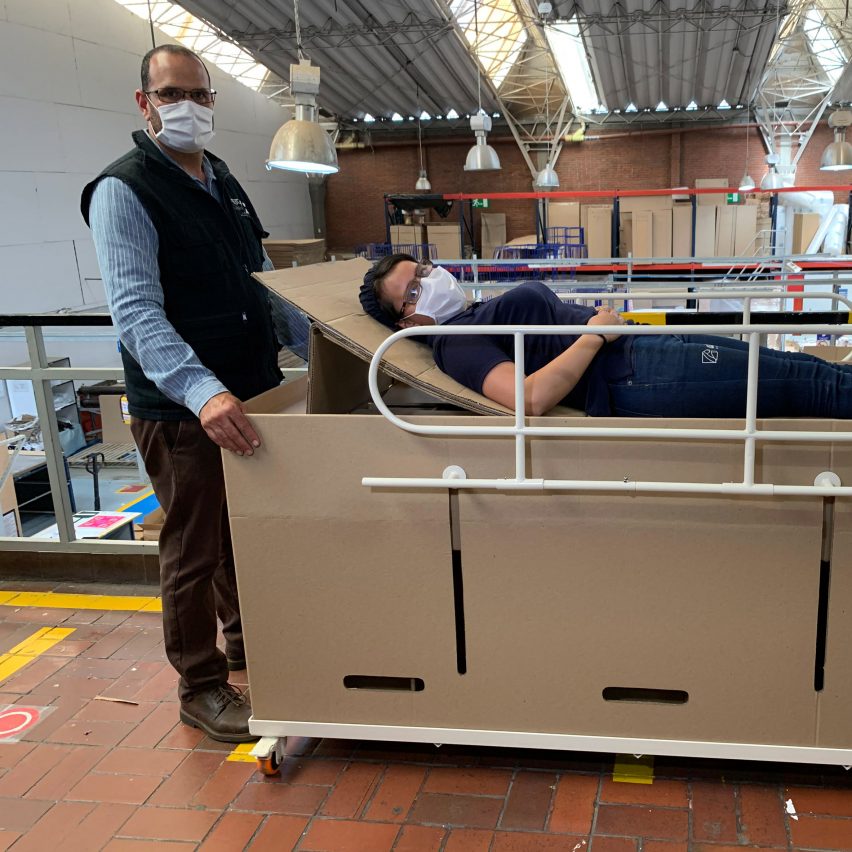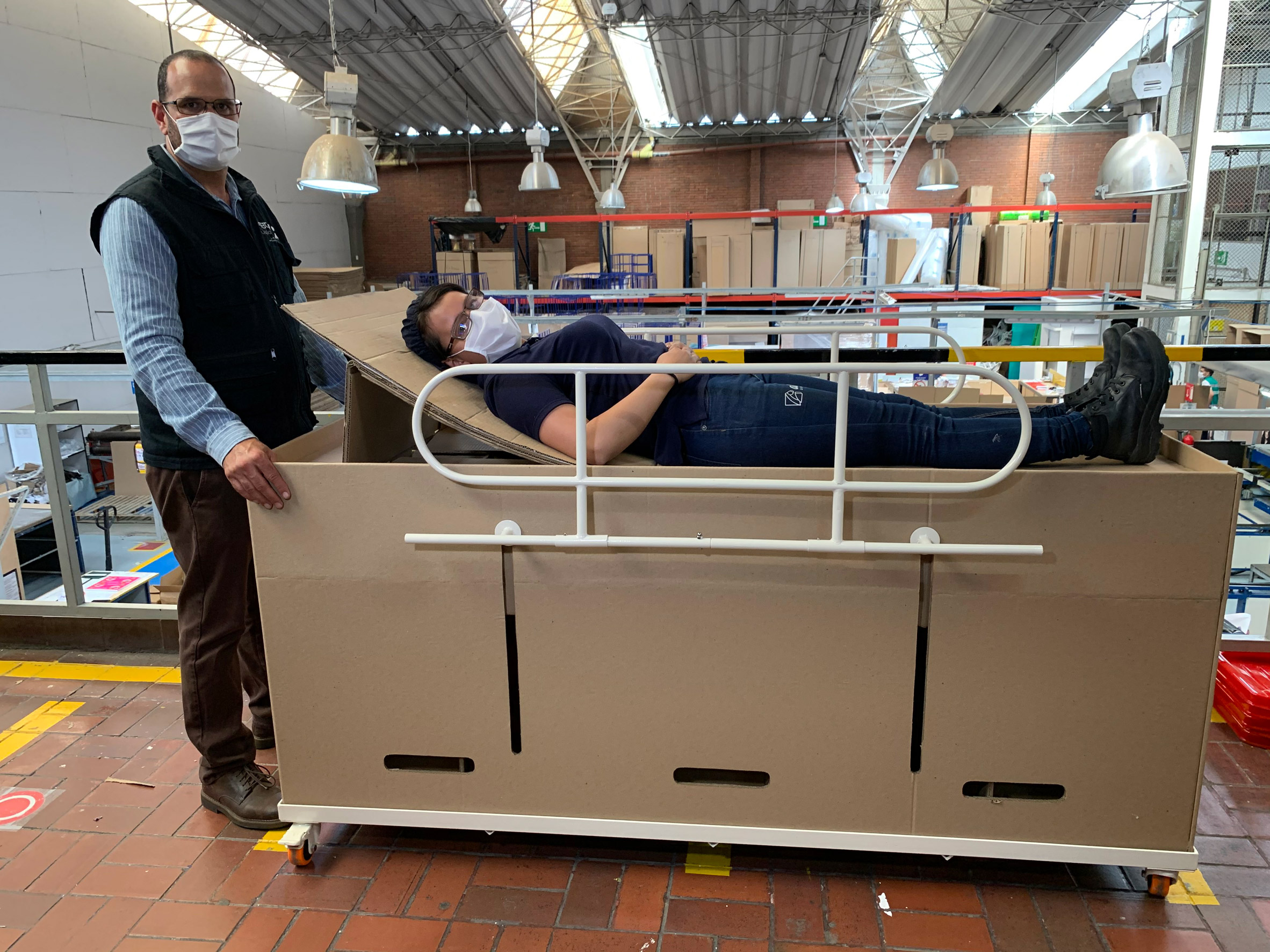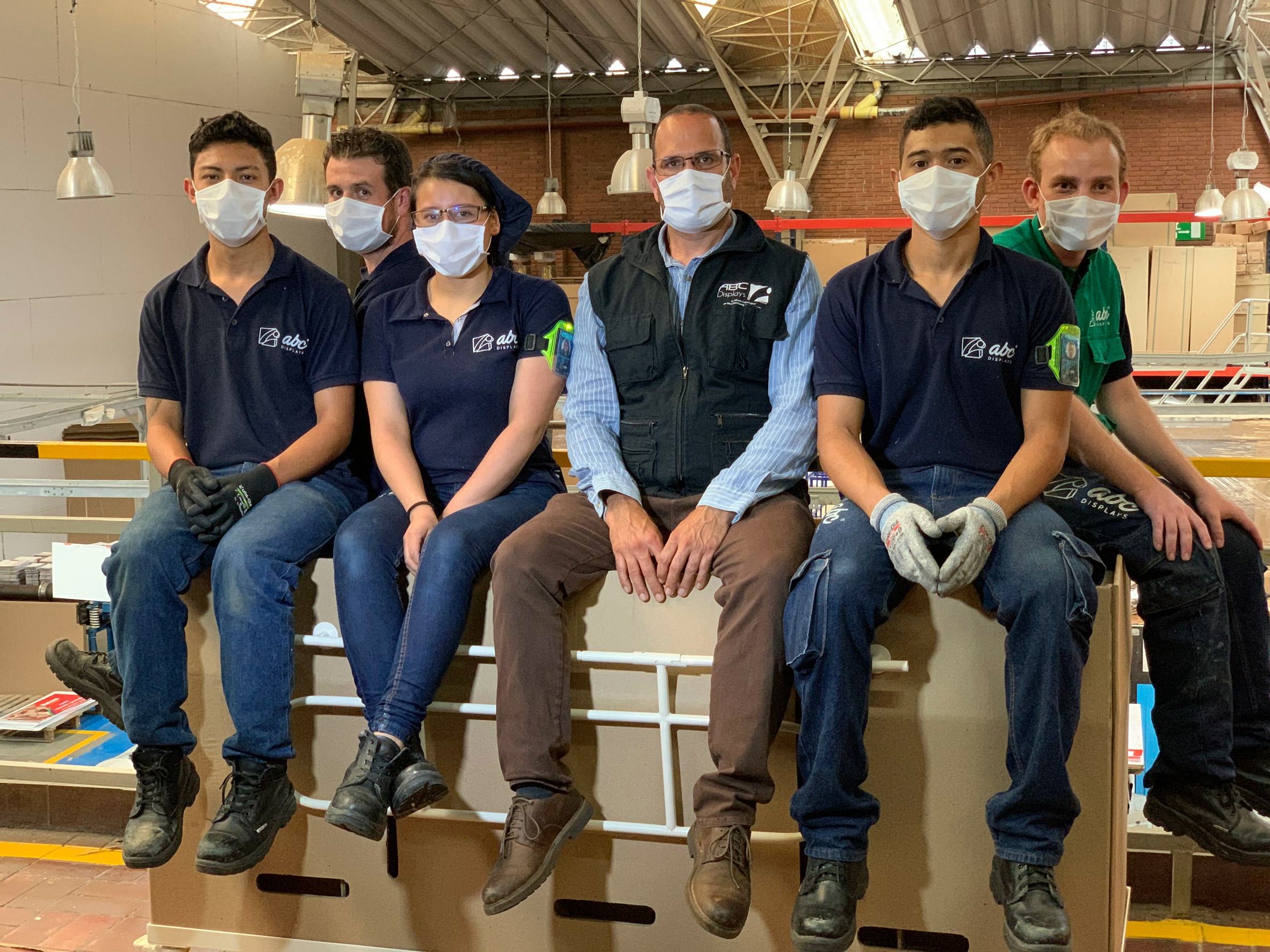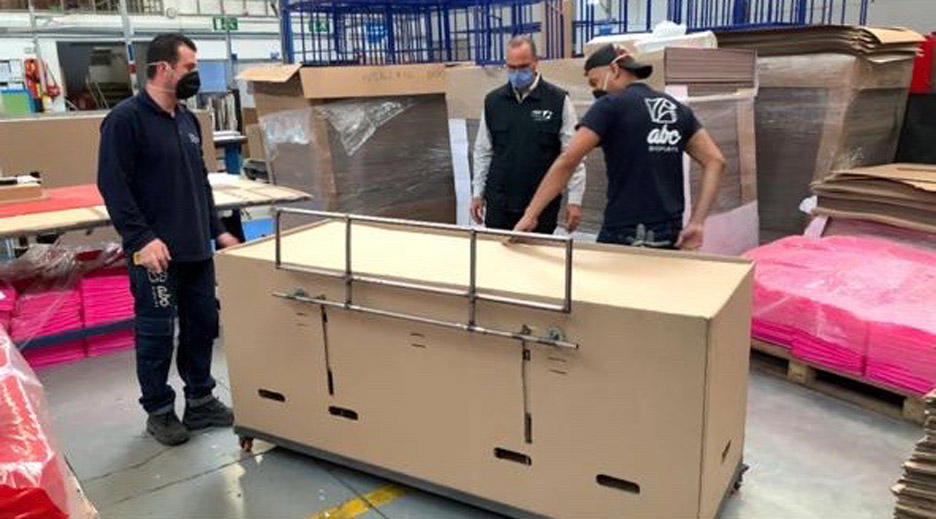
A Colombian company has created an emergency hospital bed from cardboard that can be quickly assembled and transformed into a coffin in response to the coronavirus crisis.
ABC Displays, a company in Bogotá that specialises in advertising materials, has started making and distributing the low-cost bed for coronavirus patients.
In the worst-case scenario, each bed can be rapidly reconfigured to become a cardboard coffin.

CEO of ABC Displays Rodolfo Gómez told Dezeen the idea came after seeing the dire situation in the neighbouring country of Ecuador. Mortuaries have been overwhelmed and the government had to distribute emergency cardboard coffins as bodies were left on the streets.
"It is a worthy solution so that people are not lying on the floor of hospitals and [they] are not throwing them in mass graves if they die," said Gómez.
"By converting this bed into a coffin, it also allows medical personnel to have biological isolation from the corpses without having to manipulate the corpse much, protecting the medical team," said Gómez.
"The entire procedure is done in the same bed, as in the worst case, the patient's death, it can be converted into a coffin in less than 18 seconds."
As a hospital bed, the cardboard design has slots in the sides for railings and space for brakes, so it can be mounted on wheels.

ABC Displays said they consulted with doctors and hospital staff during prototyping to make sure the bed had the best dimensions for coronavirus patients. Sheets and blankets can be used to cover the cardboard surfaces, just like a normal bed.
Cardboard was chosen for several reasons. According to recent studies, coronavirus can only survive on cardboard surfaces for 24 hours, whereas it lives for two to three days on materials such as wood, metal and plastic.
Each bed can be shipped flat packed, and the corrugated cardboard is light but strong enough to support 150 to 200 kilograms. An average adult weighs just 62 kilograms.
It also minimises the environmental impact, as it can be easily recycled after use – if not used as an emergency burial device.

ABC Displays is sending a donation of cardboard beds to Leticia in the Amazon region on the border with Peru and Brazil. Leticia's biggest hospital has only five ventilators, reported the Bogota Post, and no intensive care unit beds. Colombia currently has over 25,300 coronavirus cases and has registered over 800 deaths.
The company will donate beds to the worst affected regions, and is offering to sell them to other local governments in places such as Peru that are looking for inexpensive solutions to bed shortages. ABC Displays estimates it can manufacture 3,000 beds a month if needed.
"The company has all the capacity to export these beds worldwide, considering that there are airlines with the availability to make and carry humanitarian aid," said Gómez.
At the start of the pandemic, Swedish startup Stykka made a cardboard desk that could be used as a cheap solution by people suddenly working from home.
Photography courtesy of ABC Displays.
The post Cardboard hospital beds that double as coffins developed in Colombia appeared first on Dezeen.
from Dezeen https://ift.tt/2TYgLP0

No comments:
Post a Comment